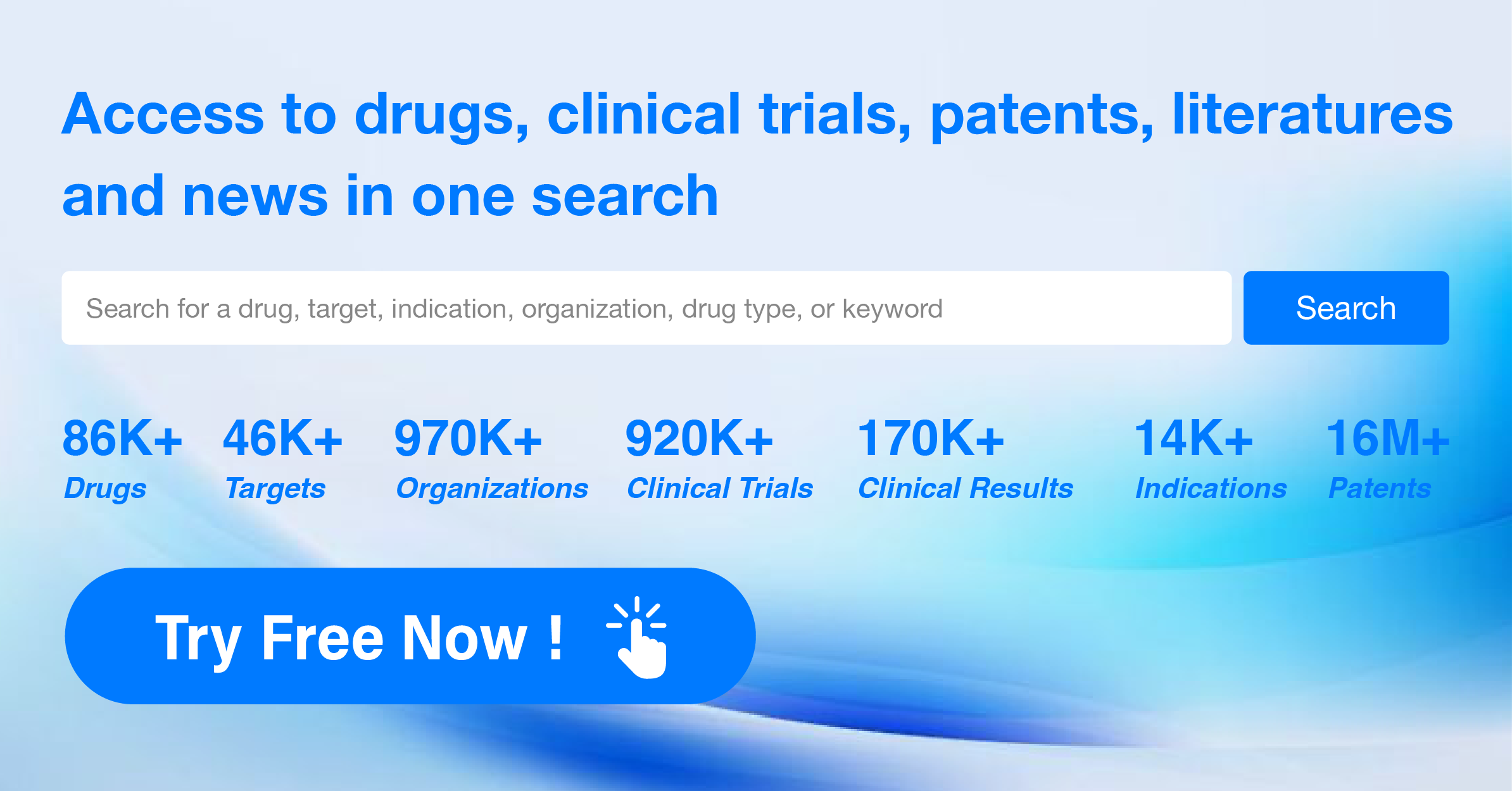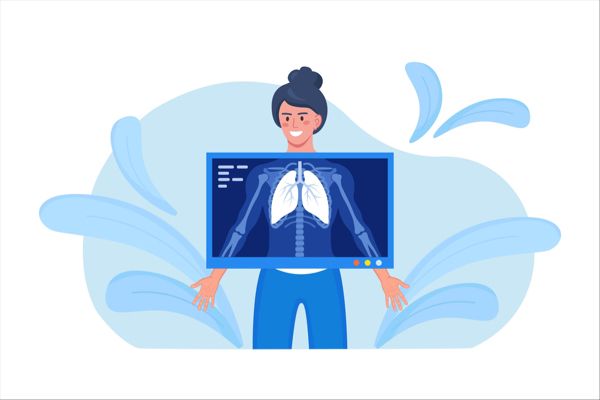Pharma Frontiers: Daily Digest of Global Pharmaceutical News - Jun 6
1.Philogen and Sun Pharmaceutical Submit MAA for Nidlegy, Their First Immunocytokine Product, in Europe
On June 4, Philogen and Sun Pharmaceutical jointly announced that they have submitted a marketing authorization application (MAA) to the European Medicines Agency (EMA) for daromun (trade name: Nidlegy). This submission is for the neoadjuvant treatment (i.e., pre-surgical treatment) of locally advanced, fully resectable melanoma. If approved, Nidlegy will become the first marketed immunocytokine product. The MAA is primarily based on the positive outcomes from the Phase III PIVOTAL study and a Phase II study.
The PIVOTAL study is a randomized, multicenter, open-label, controlled clinical trial (n=256) that evaluated the efficacy and safety of neoadjuvant treatment (i.e., Nidlegy) followed by surgery compared to surgery alone in patients with Stage IIIB/C melanoma. The primary endpoint was the proportion of patients who achieved relapse-free survival (RFS) at one year. The results demonstrated a 41% reduction in the risk of relapse or death in the Nidlegy group (HR=0.59, p=0.005), with median RFS more than doubling (16.7 vs. 6.9 months). Distant metastasis-free survival (DMFS) was also significantly extended (HR=0.60, p=0.029). Additionally, 21% of patients in the Nidlegy group achieved pathological complete response (pCR).
Regarding safety, adverse events reported in the Nidlegy group were mostly mild, with 12.7% experiencing Grade 3 treatment-emergent adverse events (TEAEs). There were no reports of Grade 3-4 immune-related adverse events or drug-related fatalities. Notably, the PIVOTAL study is also the first to demonstrate the benefits of neoadjuvant treatment for fully resectable melanoma patients, with both statistical and clinical significance.
Nidlegy is a compound product comprising the fibronectin extra-domain B (EDB-FN)/IL-2 antibody fusion protein bifikafusp alfa (L19IL2) and the TNF-α/EDB-FN antibody fusion protein onfekafusp alfa (L19TNF). The L19 antibody specifically binds to the EDB domain of fibronectin, which is widely expressed on the surface of tumor cells.
2.Astellas' New Drug Fezolinetant Launched in Hainan Boao Lecheng for Treating Menopausal Hot Flashes
On June 3, Astellas China announced the official approval and launch of fezolinetant, a non-hormonal, selective neurokinin-3 (NK3) receptor antagonist, at Boao Lecheng. This drug is designed to treat moderate to severe vasomotor symptoms (VMS) associated with menopause, offering a new non-hormonal treatment option for menopausal hot flashes and night sweats. Fezolinetant received approval from the U.S. Food and Drug Administration (FDA) last year, marking the FDA's first approval of an NK3 receptor antagonist specifically for the treatment of moderate to severe hot flashes in menopausal women.
Menopause is a natural and normal phase in a woman’s life, typically occurring between the ages of 45 and 55. Vasomotor symptoms (VMS) are among the most common complaints during menopause, characterized by sudden hot flashes that start from the head, neck, chest, and upper back, accompanied by skin redness, elevated temperature, and a sensation of heat throughout the body. Fezolinetant works by blocking neurokinin B (NKB) from binding to kisspeptin/NKB/dynorphin (KNDy) neurons, thereby regulating neuron activity in the temperature control center of the brain and reducing the frequency and severity of menopausal VMS.
This product was previously approved in the United States in May 2023 and in Europe in December 2023 for the treatment of moderate to severe menopausal vasomotor symptoms. According to Astellas' press release, the efficacy and safety of fezolinetant were confirmed through three global Phase 3 clinical trials, all of which met their primary efficacy endpoints. At weeks 4 and 12 of treatment, the frequency and severity reductions of moderate to severe VMS were statistically significant in the 45 mg group compared to the placebo group. Additionally, the overall safety of the 45 mg dose after 52 weeks of treatment was well-validated.
3.Bristol Myers Squibb Immunotherapy Combination Shows Positive Results in Phase 3 Trial, with Nearly Threefold Increase in Response Rate
On June 5, Bristol Myers Squibb announced the first disclosure of results from the Phase 3 CheckMate-9DW trial. This trial evaluated the efficacy and safety of the combination therapy of their blockbuster PD-1 inhibitor Opdivo (nivolumab) and CTLA-4 targeting antibody Yervoy (ipilimumab) versus investigator’s choice of targeted therapy as a first-line treatment for patients with advanced hepatocellular carcinoma (HCC). The analysis revealed that the trial met its primary endpoint, with the combination of Opdivo and Yervoy significantly improving overall survival (OS) compared to the control group. The objective response rate (ORR) in the Opdivo and Yervoy combination arm was nearly three times higher than that of the control group. According to the abstract presented at this year’s American Society of Clinical Oncology (ASCO) Annual Meeting, the positive data from the trial indicate that Opdivo combined with Yervoy has the potential to become a new first-line standard of care for patients with unresectable HCC.
Liver cancer is the third leading cause of cancer mortality worldwide. HCC is the most common type of primary liver cancer, accounting for 90% of all liver cancers. HCC is often diagnosed at an advanced stage when effective treatment options are limited, and patients generally have a poor prognosis. Up to 70% of patients may relapse within five years, particularly those considered to be at high risk even after surgical intervention.
CheckMate-9DW is a Phase 3 randomized, open-label trial evaluating the efficacy and safety of Opdivo combined with Yervoy compared to investigator’s choice of sorafenib or lenvatinib monotherapy in patients with advanced HCC who had not received prior systemic treatment. Approximately 668 patients were enrolled in the trial, with the primary endpoint being overall survival. Key secondary endpoints included objective response rate and time to symptomatic deterioration.
Opdivo is a PD-1 immune checkpoint inhibitor designed to help restore anti-tumor immune response by leveraging the body’s own immune system to fight cancer. Yervoy targets and inhibits CTLA-4.
4.The Phase III clinical trial for BridgeBio Pharma's investigational oral therapy, infigratinib, has been initiated
On June 5th, BridgeBio Pharma announced that their investigational oral therapy, infigratinib, demonstrated potential "best-in-class" sustained efficacy and safety in a Phase 2 clinical trial called PROPEL 2 for pediatric patients with achondroplasia. In Cohort 5, children showed an increase in the annual height velocity (AHV) by 2.50 cm/year at 18 months compared to baseline. The global Phase 3 registration trial, PROPEL 3, has been initiated with patient recruitment expected to be completed by the end of this year. So far, the key results from the dose-escalation Cohort 5 of the PROPEL 2 trial include an average AHV increase of +2.51 cm/year at 12 months and +2.50 cm/year at 18 months, both statistically significant (p=0.0015). Significant improvements in body proportion (average ratio of upper body to lower body) were observed, improving from 2.02 at baseline to 1.88 at 18 months (mean change from baseline, p=0.001). The therapy has shown consistently good safety and tolerability profiles, with no treatment-emergent adverse events related to infigratinib.
Achondroplasia is a common form of dwarfism characterized by slow growth of bones in the limbs, spine, and base of the skull, with affected children growing approximately 4 cm per year (normal growth being 6-7 cm per year). The underlying pathology of the disease is due to mutations in the gene encoding fibroblast growth factor receptor 3 (FGFR3), leading to overactivity of the FGFR3 protein. FGFR3 is a negative regulator of bone growth that affects the proliferation, activation, and differentiation of chondrocytes. Infigratinib works by blocking FGFR3 activity, effectively releasing the "brake" on a child's growth, thereby directly targeting the underlying pathophysiology of achondroplasia to promote endochondral ossification and restore normal growth rates in affected children.
5.Viking's Innovative Therapy Thyroid Hormone Receptor Beta Subtype Agonist VK2809 Achieves Primary and Secondary Endpoints
On June 5, Viking Therapeutics announced positive 52-week histological data from its Phase 2b VOYAGE study of the novel liver-selective thyroid hormone receptor beta (TRβ) agonist VK2809. The study, conducted in patients with biopsy-confirmed metabolic dysfunction-associated steatohepatitis (MASH)/non-alcoholic steatohepatitis (NASH), previously demonstrated that the primary endpoint was met. Compared to placebo, patients receiving VK2809 exhibited a statistically significant reduction in liver fat content from baseline to week 12. Today’s announcement reveals that secondary endpoints were also met: 52-week liver biopsy assessments showed that up to 75% of patients treated with VK2809 achieved NASH resolution without fibrosis worsening, and up to 88% experienced significant liver fat reduction.
The VOYAGE study is a randomized, double-blind, placebo-controlled, multi-center international trial designed to evaluate the efficacy, safety, and tolerability of VK2809 in patients confirmed by biopsy to have NASH and liver fibrosis. The enrolled patients include those with a liver fat content of at least 8%, as measured by Magnetic Resonance Imaging-Proton Density Fat Fraction (MRI-PDFF), and those with F2 and F3 fibrosis stages. VK2809 is an orally administered TRβ tissue- and receptor-subtype-specific agonist with liver and beta receptor subtype selectivity. It holds substantial therapeutic potential for a range of lipid disorders. VK2809 belongs to a novel class of prodrugs, which are cleaved in vivo to release a potent thyromimetic. The selective activation of TRβ receptors in liver tissue is believed to exert significant effects on cholesterol and lipoprotein levels through various mechanisms, including the upregulation of genes involved in lipid metabolism and clearance.
6.Ascentage Pharma Presents Latest Data on Third-Generation BCR-ABL Inhibitor in Oral Report
On June 5th, Ascentage Pharma announced that the company presented the latest data on its third-generation tyrosine kinase inhibitor (TKI), Olverembatinib (HQP1351), during an oral session at the 2024 Annual Meeting of the American Society of Clinical Oncology (ASCO). The report focused on patients with TKI-resistant succinate dehydrogenase-deficient (SDH-) gastrointestinal stromal tumors (GIST). The data demonstrated that the clinical benefit rate for these patients reached 92.3%.
Olverembatinib, an oral third-generation BCR-ABL inhibitor developed by Ascentage Pharma, has already been approved for two indications: 1) the treatment of adult patients with chronic myeloid leukemia (CML) in the chronic phase (CML-CP) or accelerated phase (CML-AP) with T315I mutation, who are resistant to any TKI; and 2) the treatment of adult patients with CML-CP who are resistant and/or intolerant to first- and second-generation TKIs. The commercialization of Olverembatinib in China is jointly handled by Ascentage Pharma and Innovent Biologics.
The oral report presented data from a Phase 1 clinical study that included 26 patients with SDH-deficient GIST. The findings showed that 6 patients achieved partial response (PR), while an additional 18 patients experienced stable disease (SD) with a duration of over four cycles, leading to a clinical benefit rate (CBR) of 92.3% (24/26). The median progression-free survival (PFS) was 25.7 months. In terms of safety, the adverse reactions observed were consistent with previously reported data, with no new safety issues identified during the treatment period.
7.AbelZeta Pharma/AstraZeneca Announces Clinical Data on CAR-T Therapy for Liver Cancer
On June 4, AbelZeta Pharma announced that preliminary safety and efficacy results from the first-in-human investigator-initiated trial (IIT) of C-CAR031 were presented as an oral report at the 2024 Annual Meeting of the American Society of Clinical Oncology (ASCO). The report demonstrated manageable safety and encouraging anti-tumor activity of C-CAR031 in patients with advanced hepatocellular carcinoma (HCC) who had undergone multiple lines of prior treatments (1-6 lines of therapy). At a median follow-up of 9.03 months, the disease control rate (DCR) was 91.3% and the objective response rate (ORR) was 56.5% across all dose levels (DLs). For patients in DL4, the ORR was 75.0%.
C-CAR031 is a novel GPC3-targeted CAR-T therapy co-developed under a joint development agreement between AbelZeta Pharma and AstraZeneca in China. The Phase 1 clinical study announced is currently underway in China, aiming to evaluate the safety and anti-tumor activity of C-CAR031 injection in patients with unresectable hepatocellular carcinoma. 83.3% (20/24 cases) of the patients had extrahepatic metastatic lesions, with a median of 3.5 prior lines of therapy. As of March 14, 2024, 23 out of 24 patients in the study met the criteria for efficacy evaluation. Tumor reduction was observed in 91.3% of the patients, including both intrahepatic and extrahepatic lesions, with a median reduction of 42.2% (range, -28.1% to 94.4%). The DCR was 91.3%, and the ORR was 56.5% across all dose levels. In DL4, the ORR was 75.0%.
At a median follow-up of 9.03 months, the Kaplan-Meier estimate of median overall survival (mOS) was 11.14 months. No dose-limiting toxicities or immune effector cell-associated neurotoxicity syndrome (ICANS) were observed in the study. Cytokine release syndrome (CRS) was observed in 22 patients (91.7%), with most cases (87.5%) being grade 1/2 CRS, and only one case (4.2%) being grade 3 CRS.
8.Alphamab and ArriVent Collaborate to Develop New ADC Drug
On June 5, Alphamab Oncology announced the signing of a research and collaboration agreement with ArriVent BioPharma, Inc. Under the terms of the agreement, Alphamab will collaborate with ArriVent to utilize Alphamab's proprietary linker-payload platform (Alphatecan) and glycosylation site-specific conjugation platform to discover and develop new Antibody-Drug Conjugates (ADCs). Alphamab will retain the rights to develop and commercialize the ADC products within Mainland China, Hong Kong Special Administrative Region, Macau Special Administrative Region, and Taiwan (collectively, Greater China). Outside of Greater China, ArriVent will hold exclusive rights to develop and commercialize the related ADC products in the oncology field and will be responsible for bearing the corresponding development expenses.
According to the agreement, Alphamab is entitled to receive a one-time, non-refundable upfront payment and potential milestone payments, which include milestones for product registration, development, and sales, with total payments up to $615.5 million. Additionally, Alphamab will also be entitled to tiered royalties based on the sales of each ADC product.
The ADC domain has become a front-runner for domestic innovative drugs and technology platforms entering the international market. Recently, BioNTech introduced YLL Biotech's ADC technology, with a total cooperation amount reaching up to $1.8 billion. In this collaboration, Alphamab and ArriVent's agreement amounts to $615.5 million. The commercial rights arrangements for the two cooperations are slightly different. BioNTech holds global rights while YLL Biotech reserves the option for Greater China rights. In contrast, Alphamab retains direct rights for Greater China in its deal with ArriVent.




